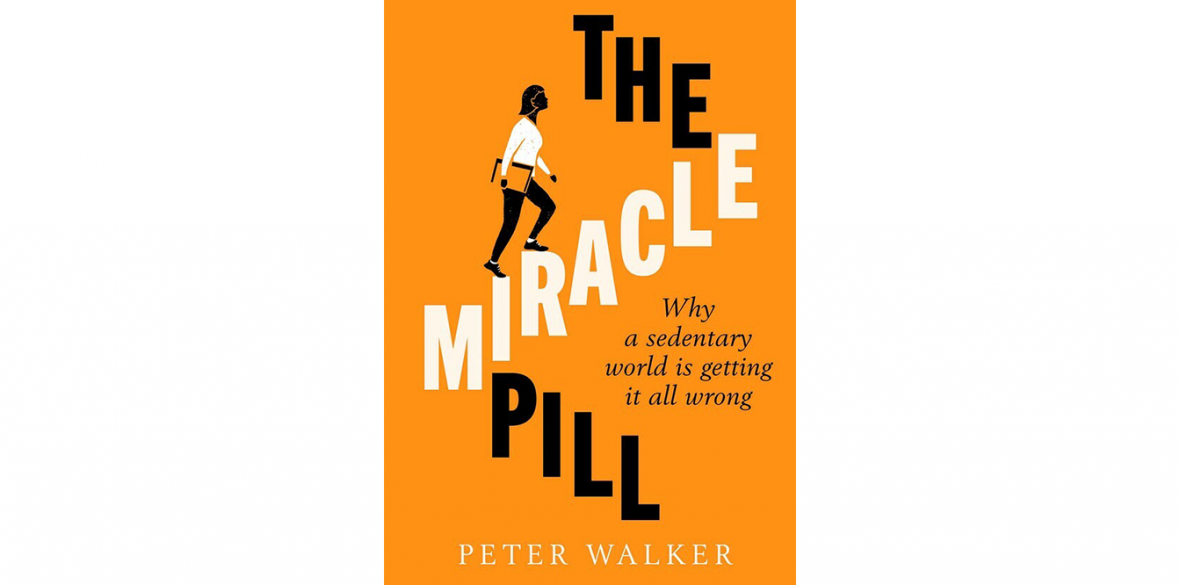This is the last article you can read this month
You can read more article this month
You can read more articles this month
Sorry your limit is up for this month
Reset on:
Please help support the Morning Star by subscribing here
WAY back when, during the first lockdown, March ’20, Jonathan Liew wrote a brilliant column on small sport versus big sport. What Jonathan meant by “big sport” was what we watch on the TV. And “small sport?” What we do, a jog, a bike ride, a workout session via Youtube, can be done on our own, non-competitive, little or no kit required, cheap.
It is “small sport” that has persisted through the pandemic while “big sport” has been cancelled, postponed, threatened with financial oblivion.
As a handbook for these curious conditions read Jurgen Martschukat’s timely The Age of Fitness. His argument is that the obsession with individual performance via “small” sport is emblematic of neoliberalism. Does the potential exist for a sporting counterculture? Yes, but first we have to understand sport cannot be reduced to a simple binary opposition, big bad sport v good small sport.
The 2021 Tokyo Olympics are pencilled in to mark the traditional summer of sport’s return with a vengeance. Gender is one way that the Olympics version of “big sport” is challenged, Jean Williams’s pioneering Britain’s Olympic Women is of the “hidden from history” feminist tradition of uncovering those who otherwise would be forgotten.
From the first games of the 20th century via the early post-war and Cold War games to the 1980s and the impact of professionalism Jean Williams tells the story of athlete Audrey Brown at the Nazi Olympics of ’36, swimmer Margaret Wellington at the ’48 austerity games, equestrian Pat Smythe and the 1952 Cold War games, and so many more to leave readers asking, why we hadn’t we heard her story before?
Where There’s a Will by Emily Chappell pursues a very current theme for this pandemic era, sport versus grief. In Emily’s case the distraction of endurance sport, ultra distance cycle racing. But also the inspiration sport can provide to help untangle the tangled up emotions of death for the living, why them, why not me? The bike, Companion, purveyor of agony and ecstasy, the perfect vehicle for a two-wheeled two fingers to everything the pandemic threw at us.
Peter Hain, and his co-author Andre Odendaal, in Pitch Battles connects sports boycotts and protests’ vital role in the anti-apartheid movement to a wider struggle for an anti-racist sporting culture, bringing the story bang up to date with both present-day South Africa, lockdown and #BlackLivesMatter.
Racism and English Football by Daniel Burdsey points to all the complex, but very necessary, challenges in football developing a response to #BlackLivesMatter. Until these are faced a truly anti-racist football will remain as far away as before last year’s explosion of black resistance.
For an appreciation of all that we have missed for the past year the books of Daniel Gray are an essential pleasure. His latest Extra Time finds 50 (50!) “eternal” delights of “mode£rn football” which just goes to show putting the £ into “modern” cannot destroy everything we hold dear, well, not yet.
The continuing need for fan ownership to keep pound-sign football at bay is the title of Jim Keoghan’s new book How to Run a Football Club. Well, it would be with the simple insertion of the word “not.” Fan ownership would inevitably mean scaling back the huge operating budgets of the behemoth clubs, and would that be such a bad thing, what precisely would we miss? And what would we gain?
In Ultras, Mark Doidge, Radoslaw Kossakowski and Svenja Mintert describe a very particular fan culture that is in turns passionate, orchestrated and performative, global in appeal though to date English fandom has remained largely unaffected, unimpressed even.
For those of a particular political inclination David Goldblatt is the “Eric Hobsbawm of football writing.” Just as Hobsbawm traced society’s past to explain the present David has done the same with football. His latest The Age of Football surveys a sport in the grip of neocolonial power, the crisis of an institutionalised Europeanism and corruption.
And my sports book of the spring? The Miracle Pill by Peter Walker would be the ideal book any year as we emerge from winter, spring into spring and look forward to the summer. But combine this with the pressing desire by many to reassess their lifestyle choices after the best part of 12 months under one lockdown restriction or another and Peter’s book is spot-on perfect.
What he calls “the sedentary position” is presented not as an individual choice but the product of social imperatives that diminish, ignore and do little to encourage an active life. The consequences are severe and costly, the alternatives cheap and beneficial, a progressive popular common sense vision of building back better would do a lot worse than taking this as its starting point. A miracle? I’m told they can happen.
Mark Perryman is co-founder of www.philosophyfootball.com










